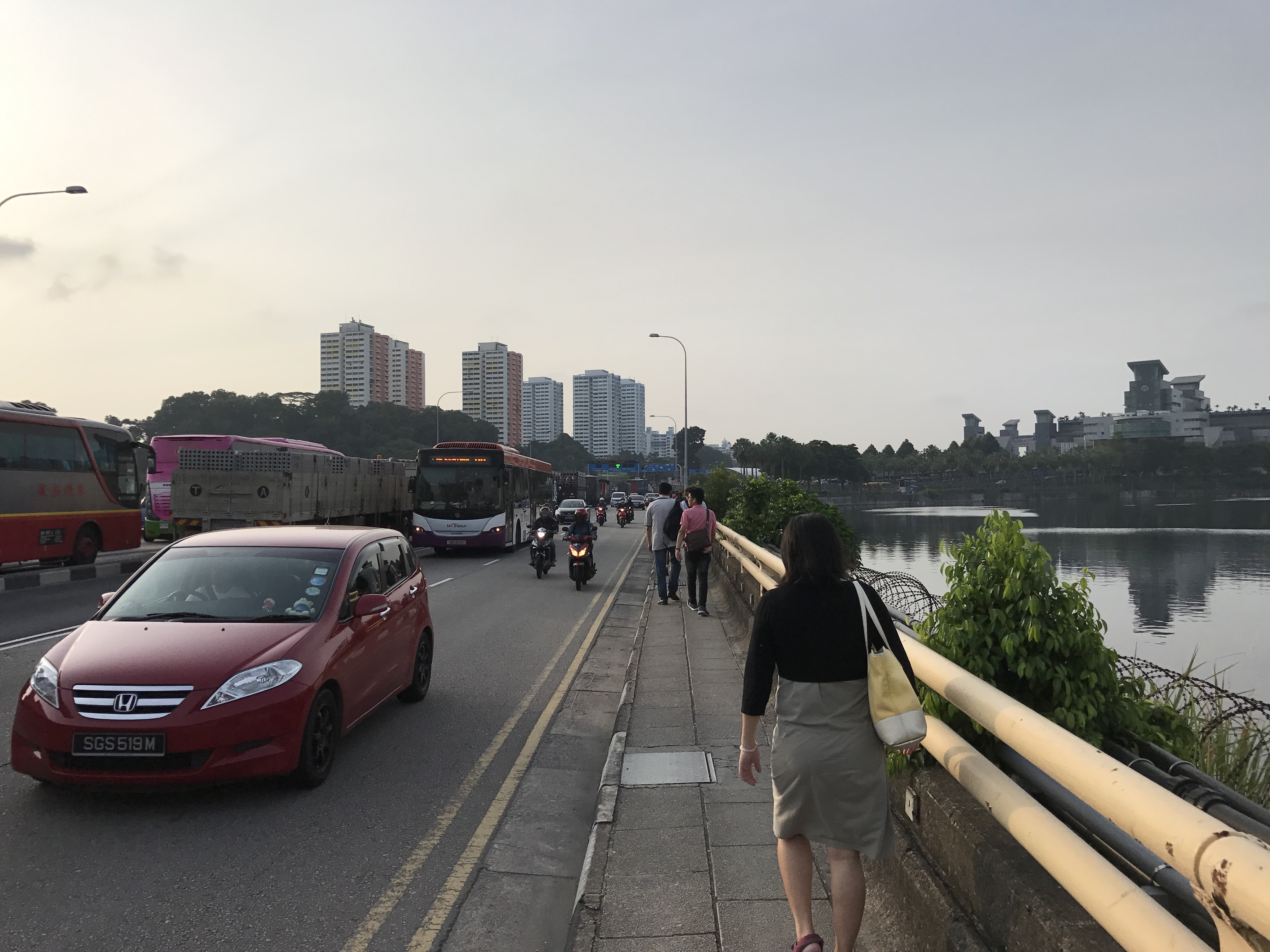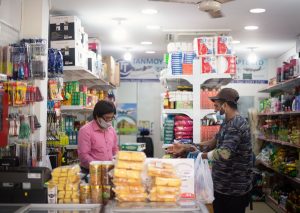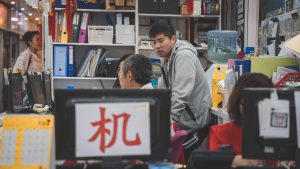In December last year, 40-year-old Isa Ali found out that his 36-year-old Singaporean wife was pregnant. He was beyond elation. Finally, he was going to be a father.
Ali, who is Malaysian, speaks on behalf of his wife. After getting married 5 years ago, husband and wife chose to stay in Johor Bahru.
While his wife is a home-maker, he works as an audio-visual manager at a five-star hotel in Singapore. For the past 18 years, including the five with the hotel, Ali has been driving from Johor to Singapore for work.
On 16 March, their entire world changed. Malaysia announced that the MCO would come into effect on 18 March, giving daily commuters between Johor and Singapore just one day’s notice. For some, the shock had yet to register, and they had less than 24 hours.
Ali and his wife had to choose: find accommodation in Singapore so Ali could continue working at the hotel, or stay put in their matrimonial home in Johor Bahru, and ride out the restriction order.
It was a no-brainer.
Ali had to be with his pregnant wife. Two years ago, she had suffered a miscarriage. He didn’t want a repeat of what she went through; he was definitely not leaving her alone at home.
Yet, as the sole breadwinner, he also couldn’t afford to lose his job. So together, they decided to drive into Singapore at 4 PM, and stay with relatives for two weeks until the MCO lifted. What could possibly go wrong?
The short answer: everything.
“My wife and I tried to settle as much as we can at home—finding a cat keeper, stocking up dry kitchen necessities, calling my relatives in Singapore to find shelter and informing my company that I’ll continue to work in Singapore,” Ali tells me.
After leaving home at 4 PM, they ended up turning back when they were confronted with bumper-to-bumper traffic stretching all the way across the EDL Expressway, leading towards the JB CIQ checkpoint.
The following video clip was taken on 17 March by Ali. He was planning to drive into Singapore at 4 PM. It shows the traffic jam on the Johor EDL Expressway heading towards the CIQ on the opposing right lane. Knowing they wouldn’t make it in time, they decided to ditch their car at home and take the bus instead.
“We reached the JB CIQ at 7 PM looking for a bus to take. When we arrived, it was chaos. People were rushing to go back into Singapore. The condition was terrible! The crowd wasn’t moving at all. The queues were long. And my wife is four-months pregnant. She stood in line with me for 2 solid hours.”
Massive human traffic jammed the CIQ entry points. With no bus in sight, the only option was to walk across the Causeway. Ali recalls seeing many Malaysians walking across that night.
Ali looked at his wife and realised they were not going to make it, especially in her condition. They decided to cancel all attempts, and turn back. This meant giving up on work with no income.
Once the MCO began, no Malaysians, including Ali, could leave the country. His wife, who is Singaporean, could technically re-enter the country, on her own.
“There was no bus, no train, no carpool service even. It was a lockdown. Nobody could drive into Singapore. The only way was to hitch back on a vegetable lorry, if we’re lucky.”
When Ali wrote to the Singapore consulate in Johor to plead on behalf of his wife, the advice he got was that all Singaporeans should return to Singapore. The consulate arranged a bus for pregnant, young, and elderly Singaporeans to return home. But Ali’s wife insisted she did not want to be separated from him.
“In the end, we chose to stay put in Johor Bahru. I had to do it for her. Family is more important than money.”
As Malaysia’s Covid-19 cases increased, new restrictions were added every other day or week. To date, they include ones like how only the primary member of the household is allowed to step out of the house to buy essentials, or how there can only be one driver in the car, and how anyone in breach of social distancing measures will be arrested.
“If we need to buy anything, only I can go out. My wife has to stay home. If we need food delivered to our house, it can only be between 11 AM to 7 PM only. Same goes for groceries.”
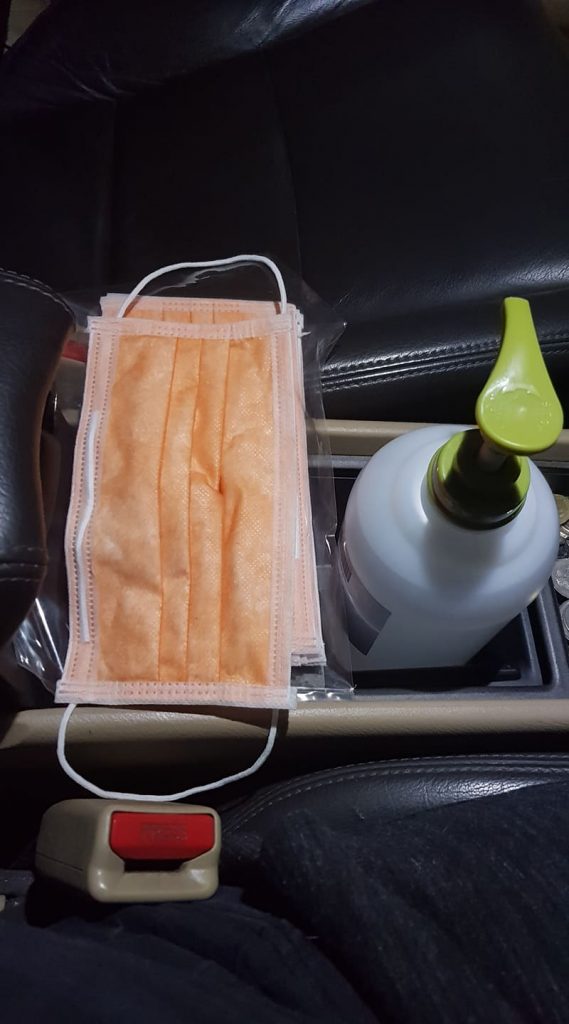
Today, Ali continues to take his wife for her monthly maternity checks at the Klinik Ibu & Anak Abdul Samad in Johor Bahru.
“My wife and I got married in Singapore. We registered our marriage in Johor Bahru a week later. While she is Singaporean, she can still visit government clinics and pay as a local here. She just needs to show her registered marriage card. Without it, she will have to pay extra as she’s a foreigner.”
With the MCO now extended to April 28, and Covid-19 cases increasing daily, there doesn’t seem to be an end in sight. Ali and his wife worry mainly about his job in Singapore, and making repayments towards their rented housing, hire purchases, and car loans.
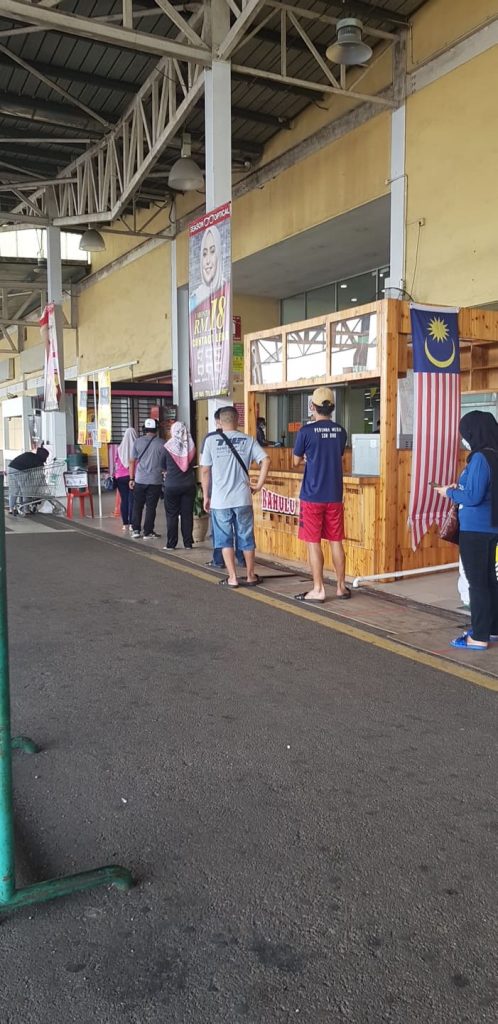
“I’ve been on unpaid leave since 18 March. I’m afraid to lose my job. Right now, it’s a wait-and-see with my employer. Over here, I still have the government grant to tide myself through. The Malaysian government has given Malaysians a 6-month moratorium on loan repayments from 1st April.
“There’s also the RM500 monthly withdrawal from our EPF (the equivalent of CPF) for 10 months. Thirdly, there’s the Bantuan Sara Hidup (BSH), which is a one-time payout to help Malaysians in this pandemic.”
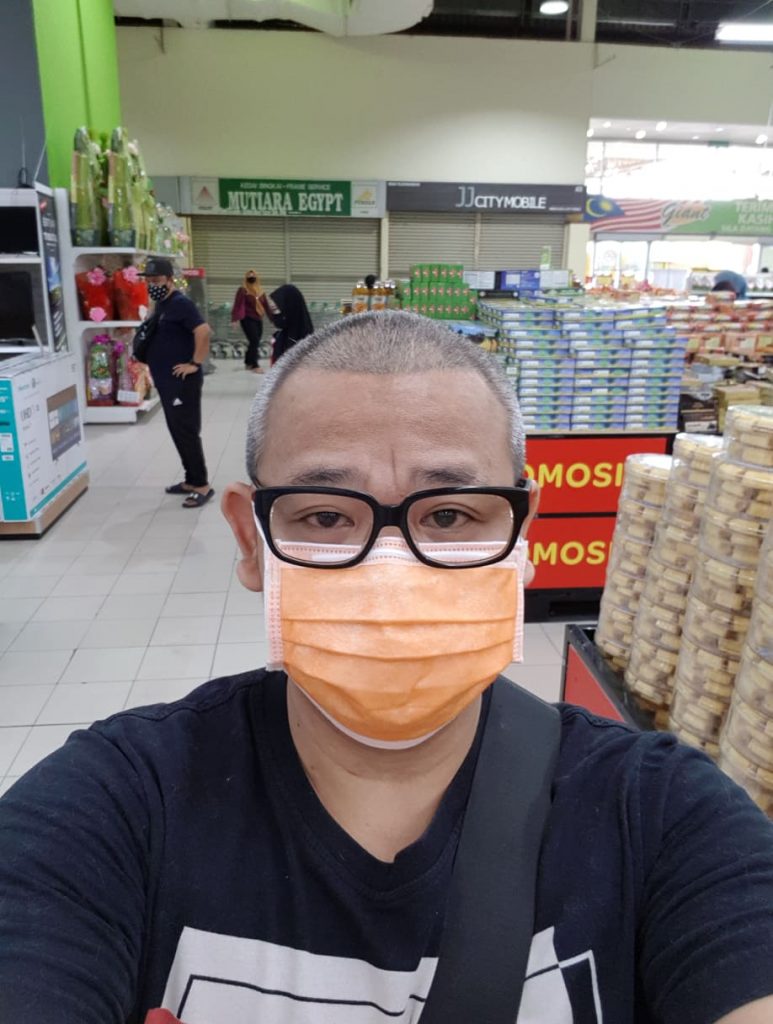
Ali tells me that all these grants can cover only 40% of his expenses at the very most. He still has to find other ways to earn income for both his wife and himself. Right now, he’s converting his outstanding credit card balance to a monthly installment with a lower 13% per annum interest rate. He currently pays about RM1,500 monthly in rent.
“With this MCO, I guess we can’t do anything now. I just hope it ends. I have 6 months to recover by then. I don’t know what to do next. For now, it’s just wait and see how the situation develops.”
Another Singaporean in a similar predicament is Sopi Nauzder, who works in Singapore as a marketing executive. He’s 34-years-old and lives with his partner in JB.
The fortuitous thing for Nauzder is he is able to work from home.
“My company understands my situation. I chose to remain in JB when the MCO was announced because my parents and partner are here in Malaysia. Leaving Malaysia means I cannot see them again for a very, long time.”
Nauzder gave two reasons for this: Malaysia could extend the MCO (which it has done, twice so far) and Singapore could restrict Singaporeans from travelling out of the country (which also happened).
Furthermore, Nauzder does not have a place to stay in Singapore. He could stay at his sister’s, but he was reluctant to trouble her and her children with having to serve a 14-day Stay Home Notice (SHN).
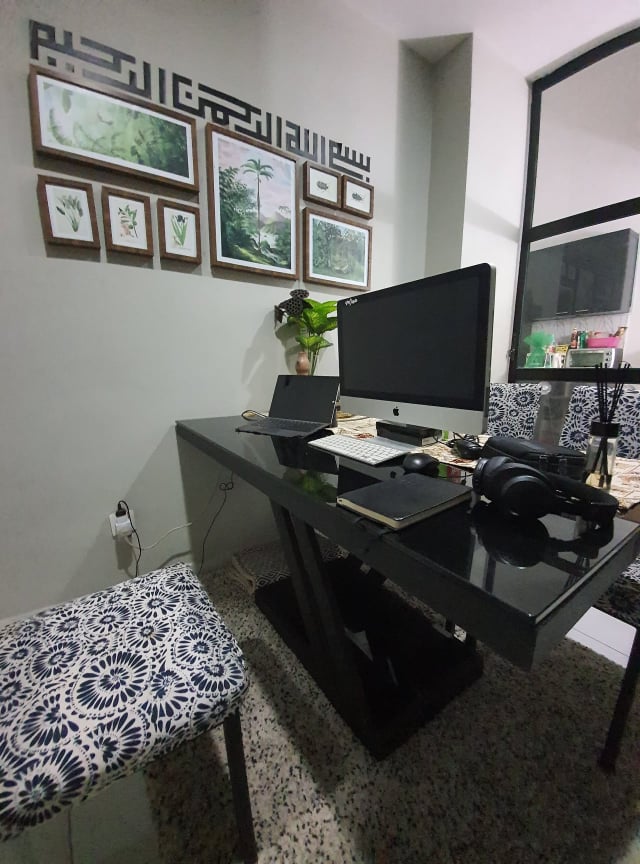
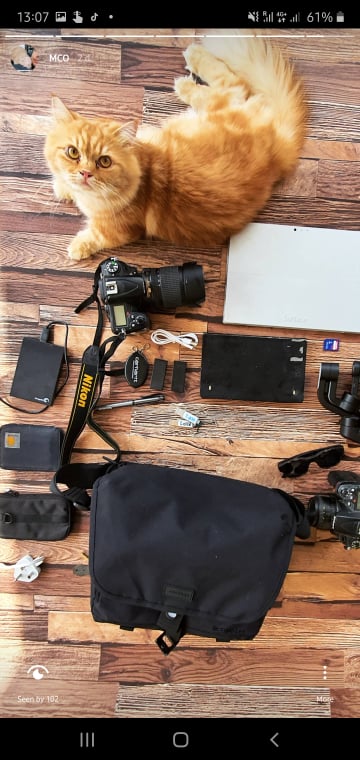
Every day before he starts work at 8 AM, Nauzder takes his temperature and reports it via an online company form. He starts off remote conferencing with his Australian colleagues (who are two hours ahead time zone-wise). At 11 AM, he makes a call with his Singapore team-mates.
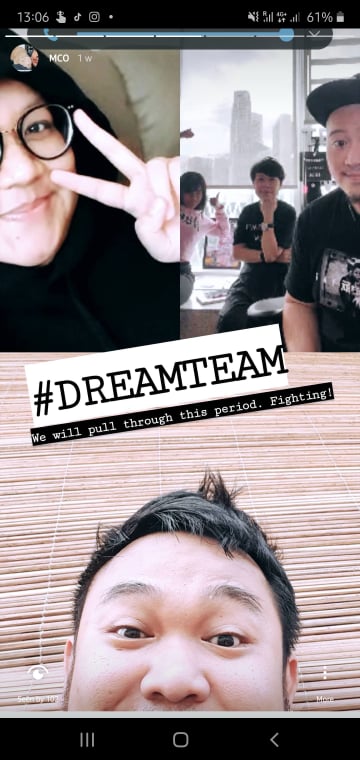
For buying groceries, Nauzder and his partner do it every Saturday. The rest of the days are mainly spent staying at home. “With the current situation, I try to minimise contact with anyone else, including my neighbours. I’m quite paranoid myself.”
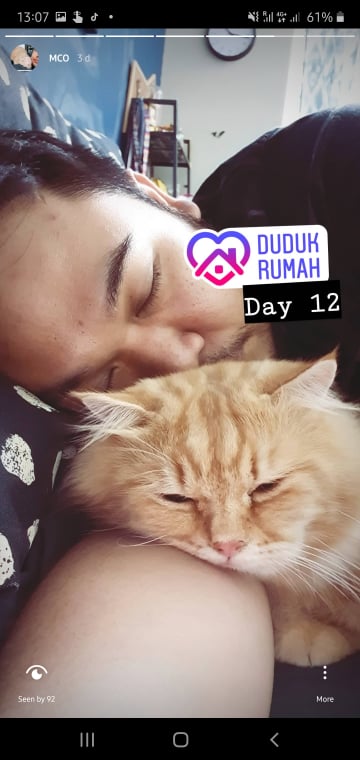
To while away their time, Nauzder and his partner cook at home, so they don’t need to go out and dabao daily. If they’re feeling lazy to go out, they’ll order via FoodPanda.
Nauzder was initially making plans to re-enter Singapore a few weeks ago.
“It’s been more than 3 weeks since I’ve been away from the office. I just need to meet the team at work and touch base. There’s no issue for Singaporeans in Malaysia to travel back home. We just can’t re-enter Malaysia until the MCO is lifted. My only concern is finding lodging for 14 days to serve the SHN.”
Unfortunately, Nauzder’s plans to return to Singapore had to be put on hold when Singapore implemented circuit breaker measures on 7 April. It meant no more meetings with colleagues or working in the office. Luckily for Nauzder, he was still in Johor when it was announced and he chose to remain in Johor Bahru until the MCO is lifted.
“The good thing is the Malaysian government is allowing Singaporeans like myself to stay in Malaysia till the MCO is lifted. I’m occupying my time with work and our online sales have picked up, so I’m kept busy.”

